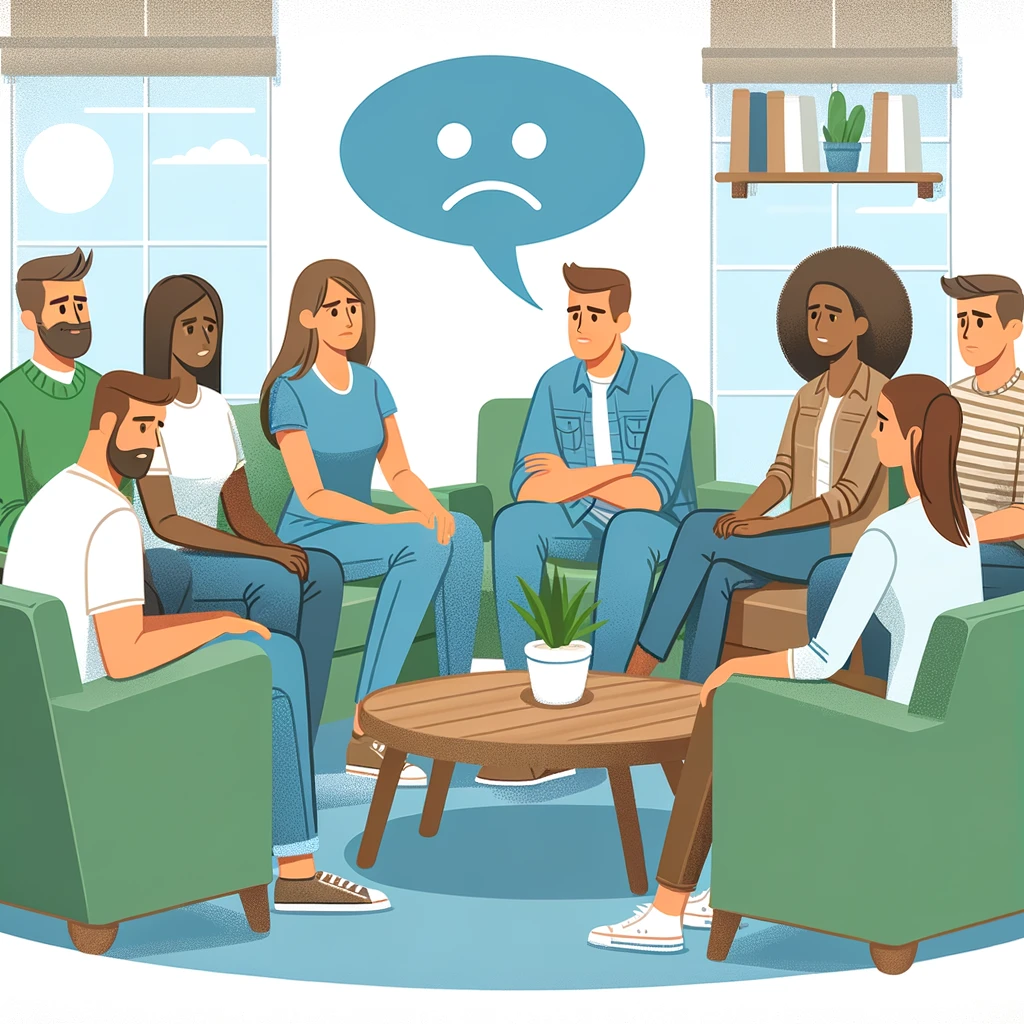Estimated reading time: 10 mins
Introduction
I write this having learned that one of my dearest friends passed away. Having experienced a sudden sense of loss and the ensuing interactions with other friends and coworkers, I write this to share my view on what works, when it comes to helping a bereaved coworker (or friend) through a bereavement.

The loss of a loved one is an intensely personal and challenging experience, and when it happens to a coworker, it can be difficult to know how best to offer support. The workplace often becomes a crossroads where professional and personal lives intersect, and navigating this space requires sensitivity, empathy, and understanding. In this comprehensive guide, we’ll explore various ways to support a bereaved coworker, ensuring that our actions are both respectful and helpful.
Understanding Grief in the Workplace
Navigating grief in the workplace requires an understanding that the impact of loss extends beyond the personal realm, permeating professional environments in complex ways. Grief is not a uniform experience; it manifests differently in individuals, influencing their emotional wellbeing, cognitive functions, and interpersonal dynamics. Recognizing these variations is key to providing appropriate support.
Firstly, acknowledging the multifaceted nature of grief is crucial. It can lead to a range of emotions from sadness and anger to guilt and numbness. This emotional turmoil may affect a bereaved individual’s concentration, decision-making abilities, and productivity. Colleagues and managers should be aware that these changes are a normal part of the grieving process.
Moreover, the workplace itself plays a dual role during an employee’s bereavement. It can act as a supportive sanctuary where routine and normalcy offer respite, or it can be an additional source of stress, exacerbating the individual’s emotional burden. The reaction of coworkers and management significantly shapes this dynamic. A compassionate and understanding approach can foster a supportive environment, while insensitivity or neglect can intensify the employee’s distress.
Furthermore, grief does not adhere to a set timeline. The acute phase may subside, but grief can resurface unexpectedly, triggered by anniversaries, workplace events, or even seemingly mundane activities. Awareness and continued support during these times are equally important.
Finally, understanding that grief has both visible and invisible aspects is vital. While some expressions of grief are evident, like tears or a withdrawn demeanor, much of what a grieving person experiences is internal and not immediately apparent. A supportive workplace culture is one that acknowledges and respects these unseen aspects of grief, offering a safe space for the bereaved to navigate their loss while maintaining their professional dignity.
Initial Response to a Bereaved Coworker
When a coworker experiences the loss of a loved one, your initial response plays a crucial role in setting the tone for their support network within the workplace. It’s important to approach this situation with sensitivity and thoughtfulness.


- Expressing Condolences: Begin by offering a simple, sincere expression of sympathy. Phrases like “I’m sorry for your loss” or “My thoughts are with you during this difficult time” are appropriate and show that you acknowledge their pain without overstepping boundaries. Avoid trying to offer explanations for their loss or making comparisons to your own experiences, as this can unintentionally minimize their feelings.
- Respecting Privacy: Each individual processes grief differently. Some may seek solace in sharing their feelings, while others may prefer privacy and space. It’s important to respect their coping mechanism. If your coworker seems reluctant to discuss their loss, honor their need for solitude. Offer a supportive presence that lets them know you are there if they choose to reach out.
- Offering Support: While respecting their privacy, it’s helpful to let them know that you are available for support. This could be as simple as saying, “I’m here if you need to talk or need anything.” Remember, the offer of support is not just about verbal assurance but also about being receptive and approachable if they decide to seek help.
- Being Mindful of Gestures: Sometimes, non-verbal gestures such as a gentle nod, a kind smile, or a brief touch on the shoulder (if appropriate) can convey empathy and understanding. Such gestures can be comforting, showing your coworker that their emotional state is acknowledged and respected.
In these initial interactions, the key is to be genuine and considerate, providing a foundation of support and understanding that your coworker can rely on as they navigate their grief.
Ongoing Support for a Bereaved Coworker
Providing ongoing support to a bereaved coworker is crucial as they navigate their grief, which often doesn’t follow a predictable timeline. Active listening becomes a key tool in this process. When your coworker expresses their emotions, offer a compassionate ear without feeling compelled to give advice or solutions. Simply being present and acknowledging their feelings can be profoundly comforting.
Practical assistance is also an important aspect of ongoing support. This can involve taking over some of their responsibilities, or offering to assist with specific tasks. It’s more beneficial to make concrete offers of help, like handling a particular project or covering a meeting, rather than making general statements such as “let me know if you need anything.” This approach removes the burden from the bereaved coworker of having to ask for help, making it easier for them to accept the support they might desperately need.
Remember, ongoing support is about maintaining a balance between providing assistance and respecting their independence and ability to manage their own needs. Your goal is to create a supportive backdrop to their healing process, not to take over their responsibilities entirely.
Creating a Supportive Environment for a Bereaved Coworker
Creating a supportive environment for a bereaved coworker is vital in helping them navigate their grief while managing professional responsibilities. This involves fostering a workplace culture of empathy and understanding, which can significantly impact their healing process.


- Flexibility and Understanding: Recognize that grief can disrupt concentration and reduce productivity. Demonstrating patience and offering flexibility in deadlines or work schedules can provide much-needed relief to a grieving colleague. It’s important to communicate that their well-being is a priority and that the team is willing to accommodate their needs during this challenging time.
- Maintaining Inclusion and Sensitivity: While it’s crucial to include the bereaved coworker in workplace activities and communications, it’s equally important to be sensitive to their current state. They may not always feel up to participating in social or team events. Offering a no-pressure invitation and understanding if they choose to opt-out, reassures them that their presence is valued but their need for space is equally respected.
- Encouraging Open Communication: Promote an atmosphere where feelings and concerns can be openly discussed. This doesn’t mean pushing a coworker to share, but rather creating an environment where they feel safe to express their emotions if they choose to. Regular, informal check-ins can signal that you care about their well-being beyond their professional output.
- Building a Support Network: Encourage other team members to express their support in non-intrusive ways. This could be through small gestures like leaving a note of encouragement or simply offering a kind smile. The aim is to let the bereaved coworker know they have a supportive network around them, without overwhelming them.
In essence, a supportive environment balances professional expectations with personal empathy, ensuring that the workplace becomes a source of comfort and stability during a time of loss.
Long-Term Support for a Bereaved Coworker
Providing long-term support to a bereaved coworker is a crucial aspect of helping them navigate their grief journey. This phase is about consistent, gentle support that respects the individual’s pace in dealing with loss. Regular check-ins are important; a simple “How are you doing today?” can be significant. These check-ins should be non-intrusive and empathetic, acknowledging that grief doesn’t have a set timeline.
Being mindful of significant dates is also a key part of long-term support. Anniversaries of the loss, birthdays of the deceased, or other special occasions can retrigger grief. A thoughtful message or a small gesture of remembrance on these days can be a profound source of comfort.
Additionally, encourage open communication and let your coworker know that they have a safe space to share their feelings when they are ready. Offering a listening ear or just being present can be immensely helpful. Remember, the goal isn’t to erase the pain but to offer a supportive presence that acknowledges and respects their loss over time.
Encouraging Professional Help
Navigating the delicate process of encouraging a bereaved coworker to seek professional help demands sensitivity and care. If you observe signs that suggest they are struggling beyond the normal bounds of grief—such as prolonged periods of depression, significant changes in behavior, or an inability to manage daily tasks—it may be appropriate to suggest professional support. Begin by privately expressing your concern in a non-judgmental way. Emphasize that seeking help is a sign of strength, not weakness, and that it can provide them with additional coping strategies and support.
If your workplace offers an Employee Assistance Program (EAP), gently remind them of this resource. EAPs often provide confidential counseling services and can be a valuable starting point. It’s also helpful to be informed about other local bereavement support groups or counseling services, in case they prefer options outside of the workplace. Remember, the goal is not to pressure but to present options and offer support in accessing them.
Handling Your Own Emotions
- Understanding Your Feelings: Encountering a coworker’s grief can trigger a spectrum of emotions within ourselves, from sadness and empathy to confusion and discomfort. It’s important to recognize and understand these emotions. Remember that it’s natural to feel helpless or upset when faced with the grief of others. Acknowledge your feelings instead of ignoring them, as this is crucial for your emotional well-being.
- Balancing Empathy with Self-Care: While empathy is a valuable trait, especially in times of sorrow, balancing it with self-care is essential. Being emotionally available for a grieving coworker doesn’t mean you should neglect your own emotional needs. Ensure that you’re taking time to process your own feelings, perhaps by reflecting privately, talking with a friend or family member, or engaging in activities that bring you comfort and relaxation.
- Seeking Support for Yourself: If you find the emotional weight of the situation overwhelming, it might be beneficial to seek external support. This could mean talking to a mental health professional who can provide strategies to manage your emotions effectively. Remember, being in a good emotional state yourself is key to being able to offer genuine and helpful support to others.
Workplace Initiatives


In the context of supporting a bereaved coworker, workplace initiatives play a critical role in fostering an environment of empathy and understanding. Firstly, it’s essential to be well-versed in your workplace’s bereavement policies. These policies should ideally offer adequate time off for grieving employees, along with flexibility in their return to work. If such policies are lacking or outdated, advocate for their development or revision. This advocacy not only supports the immediate coworker in grief but also sets a precedent for future support within the organization.
Additionally, organizing training sessions or workshops on grief support can be immensely beneficial. These sessions can educate employees on the complexities of grief, appropriate ways to offer support, and the importance of emotional intelligence in the workplace. They can also provide tools for managers and team leaders to better support their team members during such challenging times. Such initiatives contribute to creating a workplace culture that values emotional well-being and compassion, ultimately leading to a more supportive and understanding work environment for all employees.
Conclusion
Supporting a bereaved coworker requires a delicate balance of empathy, respect, and understanding. It’s about being present without being overbearing, offering practical help without intruding, and creating a supportive environment that acknowledges their loss while respecting their individual coping mechanisms. By fostering an environment of compassion and support, we can not only help our coworker through a difficult time but also strengthen the bonds within our workplace community.
Closing Thoughts
In the journey of supporting a bereaved coworker, remember that your role is not to fix their pain but to walk alongside them in their journey of grief. Your understanding, patience, and willingness to help can make a significant difference in their healing process.
